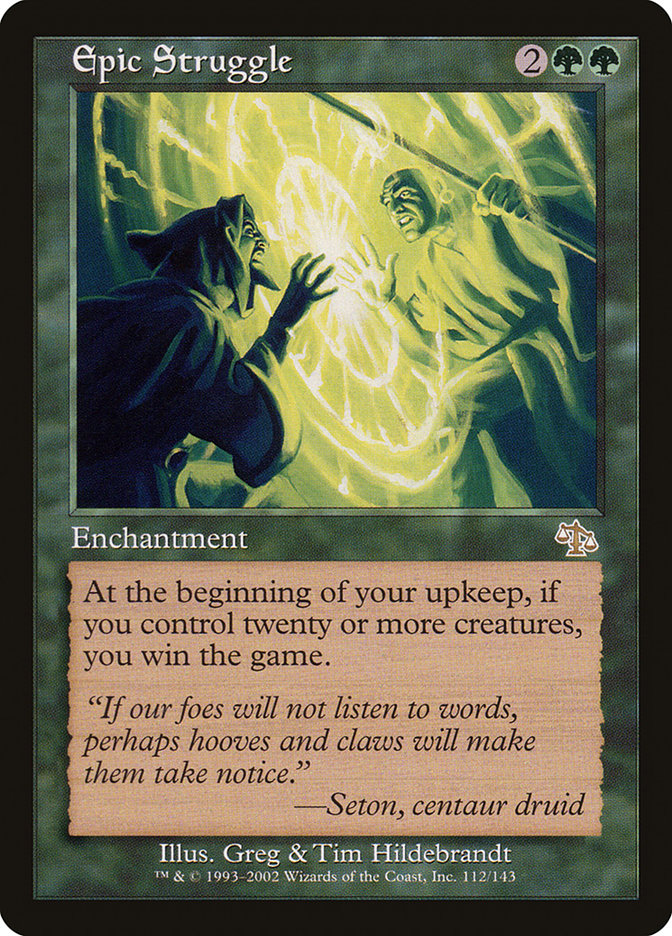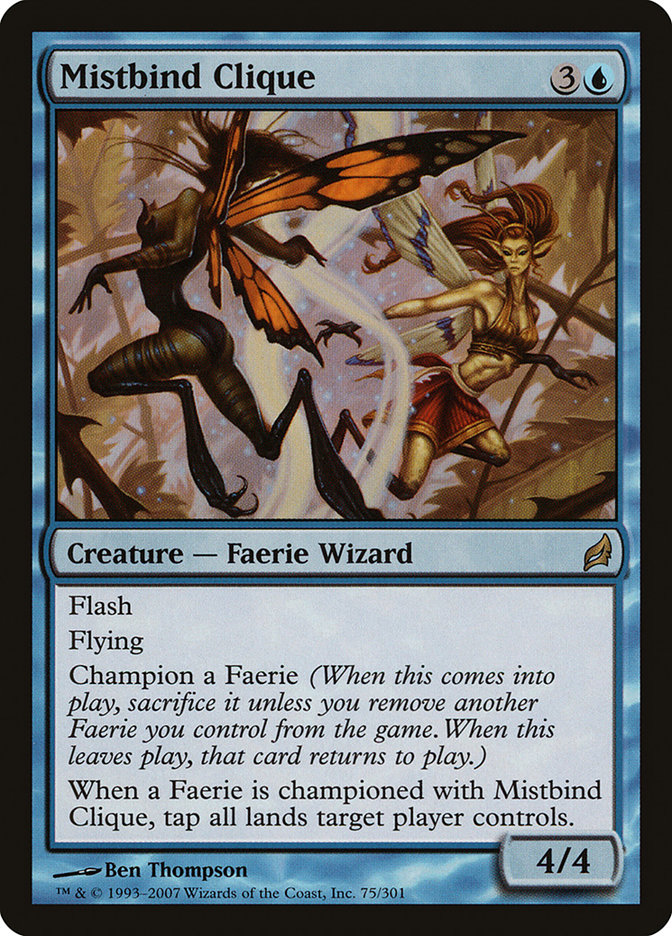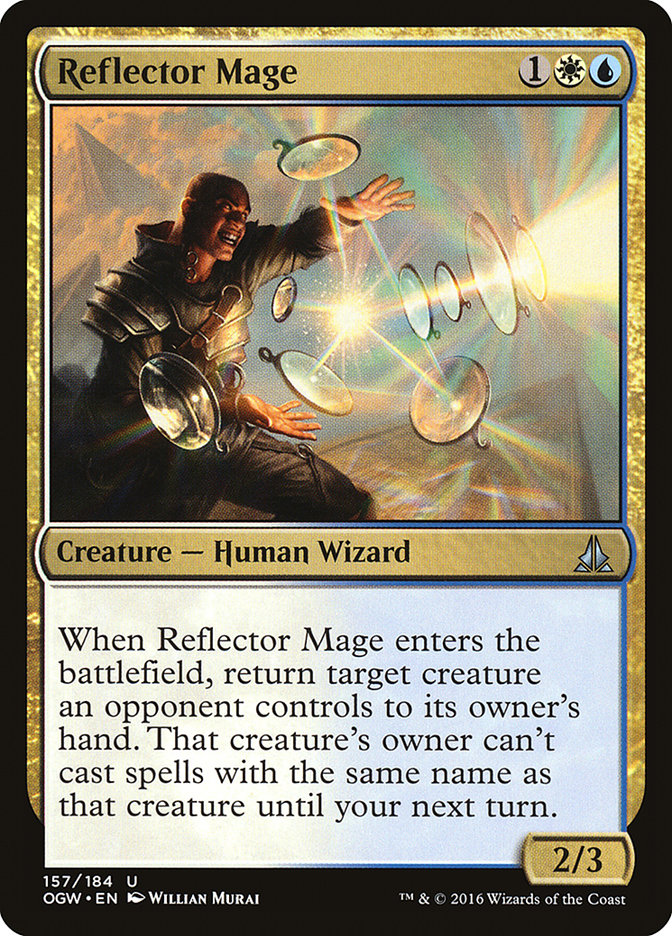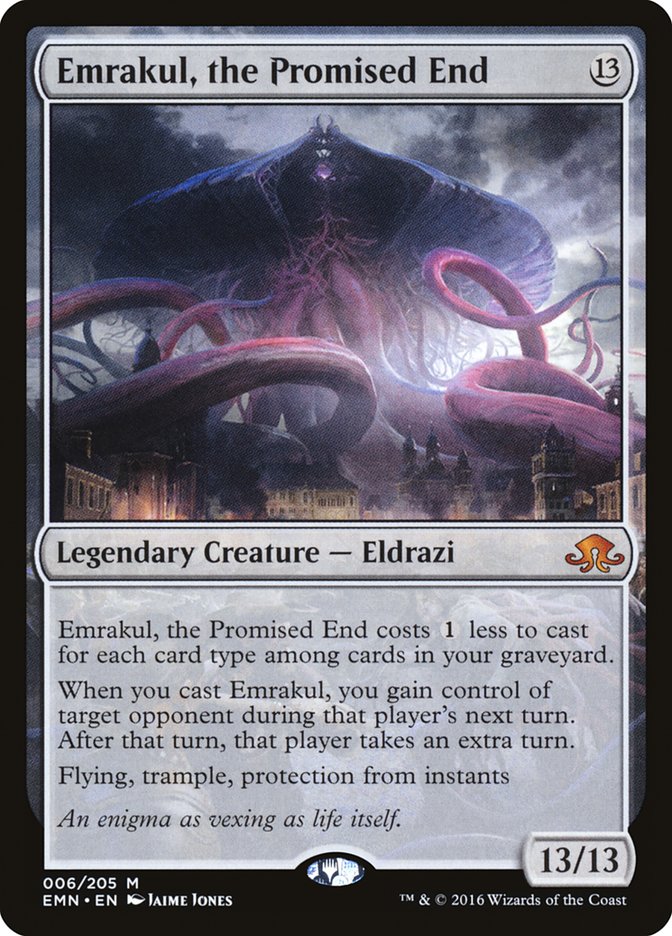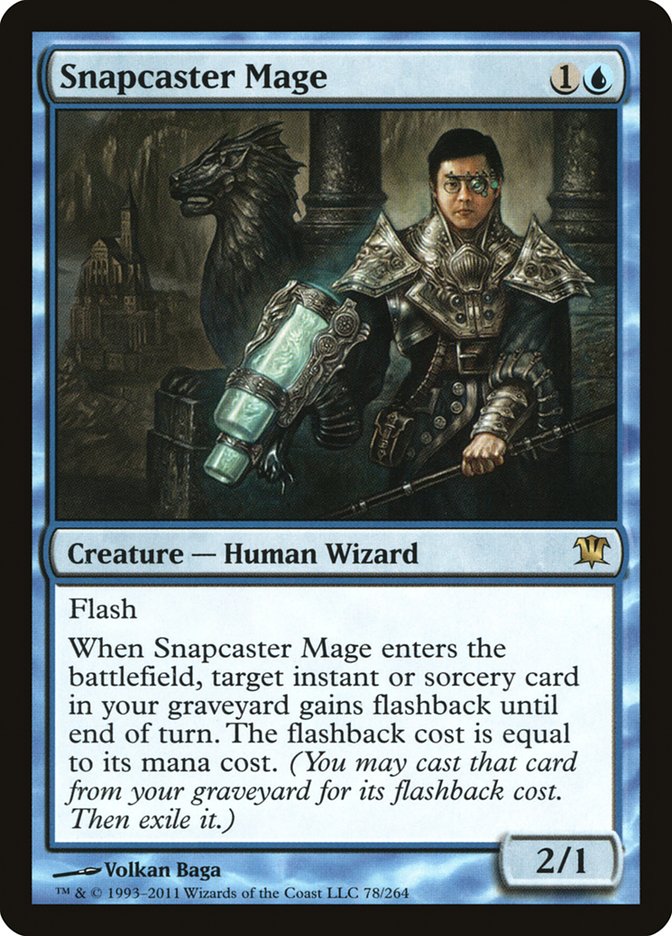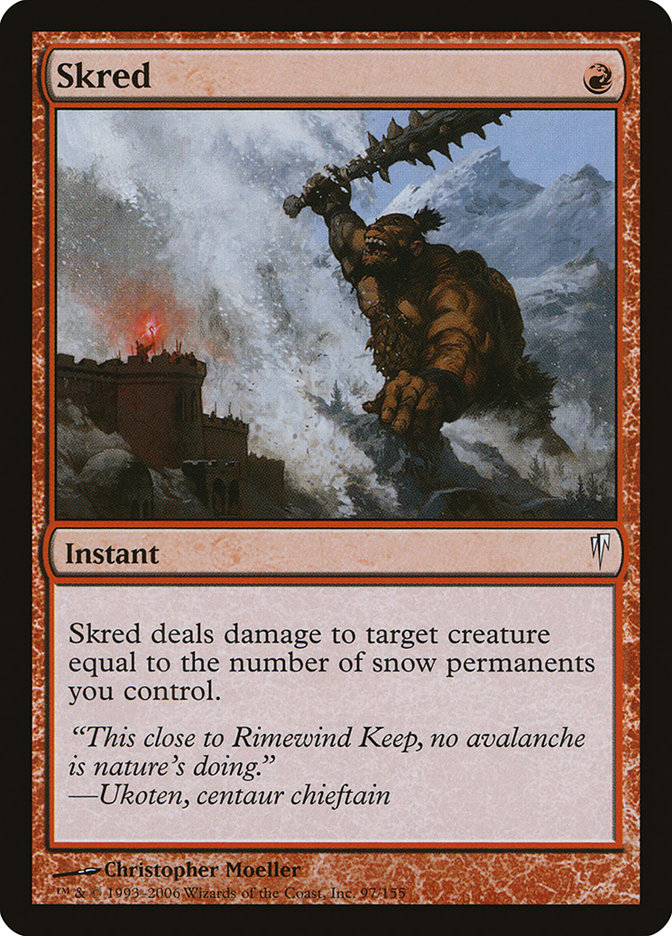I play a lot of other games in addition to Magic, and one thing I like about playing other games is that, for me, other games often highlight specific elements that are present but not necessarily as prominent in Magic. They have a strategic focus in a way that calls attention to how they play, which can be applied back to Magic. Recently, I was invited to play in the World Championship for Magic Hall of Famers Rob Dougherty and Darwin Kastle’s game, Epic. I’m taking the tournament pretty seriously, so I’ve played a lot the last couple weeks to prepare.
The game plays fairly similarly to Magic, but it has a very different resource system (everything costs one or zero) and different timing rules (you can’t respond to anything and only get priority at three specific points on your opponent’s turn). Due to its similarities, this is a perfect game to draw lessons that can be applied to Magic, and the game is different enough to have its own unique strategic focus.
Specifically, the game really highlights the idea of having position on your opponent. In this case, I’m using the concept of having position on someone in a way that might be most analogous to poker. In poker, the player on the left is said to have position because the player on the right has to act first, which means the player on the left is always acting with the additional information of whatever the player on the right did. Having position in poker provides a substantial advantage, and the same is true in other games.
In poker, you get position on another player as a natural consequence of seating and the game rules. In Magic and Epic, position works and passes a little differently. The easiest way to have position on another player is to be winning on the battlefield. If the goal of the game is to wait for your opponent to act before you act, then neither player should do anything, but if one player is ahead on board, they’re guaranteed to win if no player ever does anything, so the other player is forced to act at some point. Usually, the knowledge that they have to act at some point incentivizes them to act sooner rather than later, but there are exceptions. The result is that often, when one player is ahead, what would be a waiting game if the board was at parity becomes a game in which both players are acting immediately to try to remove or claim the positional advantage.
In Epic, each player can essentially cast one important spell per turn, and both players almost always have a lot of options about which spell that can be, so it’s usually very advantageous if you can make your opponent cast their spell first so that you can know how they’re spending their turn before you decide how you’re spending yours, so that your spell can directly answer theirs, and so that you know that they can’t do anything too strong to answer what you’re going to be doing.
Clearly, the same thing comes up in Magic–when both players have expensive instants, you really want your opponent to act first; it’s just more prominent in Epic because everything you do basically taps you out, and both players always have instants, so the structure where this is most important comes up constantly.
In Magic, this principle is the exact reason that “aggro-control” is archetypically considered to be structurally advantaged against “pure control”–the aggro control deck gets position on the control deck early in the game because it’s built to do that using cheap threats, and then the deck is built to leverage its position throughout the rest of the game to keep the opponent behind and make the most of its spells.
In practice, not all aggro control decks are advantaged against all pure control decks. If the threats are too weak, they only create an illusion of position–the aggressor thinks they have position because they think they have inevitability because they’re ahead on the battlefield, but sometimes, the reality is that the control player has inevitability because they’re building toward an end game plan that goes over the top of whatever the aggro control player has done up to that point. In this case, despite appearing ahead visibly, the control player actually had position the entire time, because they knew that the aggro control player hadn’t established a fast enough clock, so it was actually the aggressor who had to act to get to a favorable outcome.
To look at this more usefully in Magic terms, if you’re playing W/U Flash against B/G Delirium, if you’re attacking with a Reflector Mage and passing with mana up and your opponent isn’t doing anything and a few turns go by, you might think you have position–you can hold up mana for a Void Shatter and your opponent will have to act or you’ll kill them with Reflector Mage. Really, your opponent might just be building up to cast Emrakul, the Promised End. If that’s their end game, even though you have two power in play, you need to understand that they have position because they’ll reach their end game of casting Emrakul before you reach your end game of attacking for two ten times–you need to find a window to get more power into play.
In any matchup where both players have a lot of reactive spells, positioning will come up, and it informs who should act and when.
In Magic, there are other kinds of positioning. You’re not just positioning the board, but you’re often fighting over mana positioning (this comes up less in Epic because both players have the same amount of mana on every turn–the untap step in always simultaneous for the purpose of casting spells; however in Magic, the asymmetrical nature of untapping mana, the fact that you do it at different times, leads to timing your spells to create spots where you can spend mana and your opponent can’t). This is a large portion of the value of instant-speed threats. You can cast a spell at the end of your opponent’s turn to force them to act so that they don’t have mana on your turn, or you cast an instant speed threat at the end of your opponent’s turn so that you untap immediately after so that you’re not untapped during your opponent’s main phase. Either option is an important way to maintain mana positioning that comes up in different situations.
One big spot where mana positioning comes up is combat in Limited, and it favors the attacker. If I have a creature in play and then you use your mana to play a creature, when I untap and attack, I’ll have mana untapped and you won’t, which means that I can play combat tricks and you can’t. If I attack a smaller creature into your larger creature, you probably need to accept that if you block, I’ll play something and your creature will die. Because I have position on you, I know my spell will work.
Now, most of the time that my opponent is ahead and attacking me, I’m trying to block to stabilize. If I play a larger creature than my opponent has, I’m probably planning to block with it. If they attack, I know that I’m going to lose my creature, but I’m still going to block to make them use whatever they have so that the next creature I play might be able to successfully block. However, there are exceptions. The biggest one is if I have a trick of my own. If I don’t have a trick, I just want them to use their trick to get it out of the way, but if I have a trick that will go over the top of theirs, then if I can block and get them to use their trick, and then use mine, I can trade that trick for both their trick and their creature, generating a two-for-one, so I’ll choose not to block the first attack.
If you ever attack with a smaller creature and I don’t block, if I don’t tap out on my next turn, you can be close to 100% certain that I’ll have a trick if you try to attack me again. What I’ve done by waiting and taking your first attack is that I’ve taken position from you–while I was tapped out, you had position, but when we’re both untapped, mana positioning is neutral, and the fact that my creature is larger means that I’ll have position in combat–you’ll have to act first, since the default action will be your creature dying, and then I’ll get to respond to that. This is why it’s very hard to attack into open mana and a good blocker.
So what are the takeaways? What can you practically do to leverage an understanding of positioning?
Well, first, and this is a point that’s really highlighted in Epic, understand that in many spots, the real advantage of being ahead is that it grants you a positional advantage. Once you have that, there are diminishing returns on getting further ahead. However, remember the lesson from the earlier example about UW against GB–a positional advantage can be illusory, and you need to make sure that you actually have situational inevitability (situational inevitability determines who has position, it is distinct from true inevitability, which is the player who’s favored in a long game, which fundamentally determines who is the aggressor (the player who does not have true inevitability) when you’re ahead; and not that despite a small board advantage, you are still the one who needs to act in an immediate sense.
This idea that getting incrementally further ahead has less value informs both how to play a game, with regard to things like extending into sweepers and figuring out when you can afford to leave up instants, but also into deck design–some decks just want to be built to be as fast as possible, but others are trying to leverage positional advantages. This is particularly important in Standard right now because one of the most powerful cards is Archangel Avacyn, a card that performs far better when you have position. Therefore, building a deck to maximize the strength of that card means building a deck that establishes position to leverage Archangel Avacyn, and once you have that infrastructure of cheap threats that are useful for establishing position, you might want to find other payoff cards that reward you for having a positional advantage (like counterspells). Thinking of cards in your deck as being designed to either capture or maintain position can inform how you balance space in your deck and how you use your cards in a game.
An Aside on Modern
How crazy is Modern right now? For a format that I say is all about doing crazy proactive unfair things, results really aren’t backing me up. We’ve recently seen impressive finishes from Bant Spirits at the SCG Tour in Milwaukee and now a finals match between Skred Red and Grixis Control in #GPDFW. A lot of people complain about Modern and a lot of people were unhappy about the banning of Splinter Twin, but it’s really hard to deny that Wizards has gotten Modern to a place with impressive diversity.
While there are players who find this diversity daunting when it comes to testing or building a deck, or that complain that the diversity makes it too hard to find an edge because you can’t be prepared for everything and some weird deck might always beat you, and so forth, this diversity is their exact goal for the format, and I think they’ve done a great job getting the format to this point.
The purpose of Modern is to be a place where you can take advantage of the non-rotating format to keep playing the same deck, but where you won’t get bored doing that because you’ll play against enough different decks that you won’t just be playing the same games over and over. Diversity in this way helps the players who want to keep playing the same deck and also the players who want to change decks, because those players have so many options.
The people who complain about it tend to be people who dislike the chaos–they want to feel like winning is always in their control; if they put in the work, they can find a way to beat everything. Basically, it can be a frustrating format for Spikes. This is partially why it’s not a Pro Tour format, which I think is for the best, but I think it’s in a really great place right now for doing what it’s trying to do.
Now, despite that, I still think Golgari Grave-Troll should be banned–Dredge has gotten too many new tools since it was unbanned, and while it can be hated out, its presence forces enough graveyard hate to be played that it pushes every other graveyard deck out of the format, and I think we’d have a more diverse format if Golgari Grave-Troll dredge was replaced by the ability to build other graveyard decks, like Zombies, Aristocrats, or Rally the Ancestors style decks.


